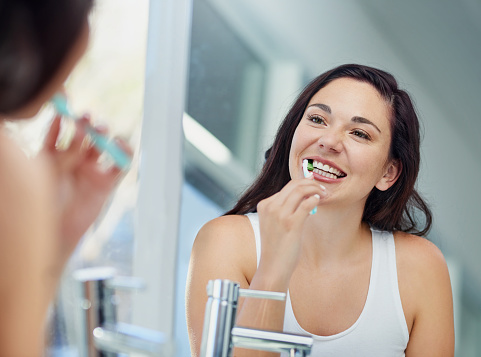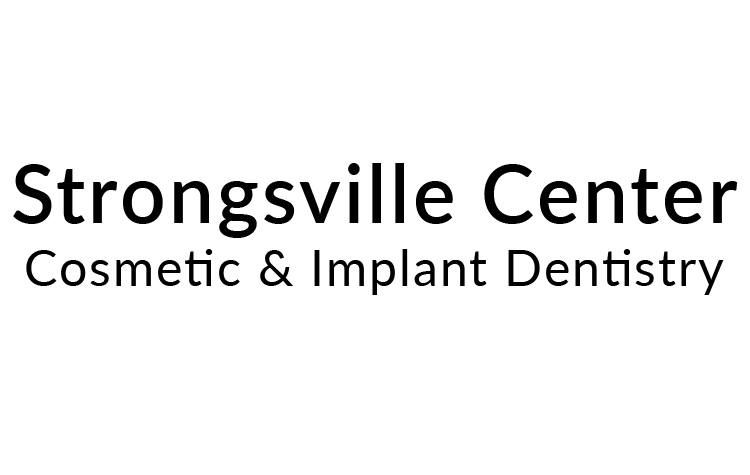How Your Brushing Habits Can Harm Your Oral Health
Posted on 1/1/2025 by Strongsville Center for Cosmetic & Implant Dentistry |
 Brushing your teeth is an essential part of maintaining good oral health, but did you know that even the act of brushing can harm your teeth and gums if done incorrectly? Fortunately, understanding the common mistakes people make while brushing can help you refine your technique and ensure you're doing more good than harm. Brushing your teeth is an essential part of maintaining good oral health, but did you know that even the act of brushing can harm your teeth and gums if done incorrectly? Fortunately, understanding the common mistakes people make while brushing can help you refine your technique and ensure you're doing more good than harm.
Brushing Too Hard
Many people believe that the harder they brush, the cleaner their teeth will be. However, brushing too hard can actually damage your teeth and gums. The force of aggressive brushing can wear down tooth enamel, the hard outer layer that protects your teeth from decay. This can make your teeth more sensitive and susceptible to cavities. Additionally, hard brushing can irritate your gums, causing them to become inflamed and bleed.
Using the Wrong Toothbrush
There are a variety of toothbrushes available, each with different features. Choosing the right brush for you can make a big difference in the effectiveness of your brushing and the health of your teeth. For most people, a soft-bristled toothbrush is the best option. Hard bristles are more likely to damage your teeth and gums, especially if you brush too hard.
It's also important to consider the size and shape of your toothbrush. The brush should be small enough to reach all areas of your mouth comfortably, and the head should be angled so that you can easily clean the surfaces of your teeth.
Not Brushing Long Enough
Most dental professionals recommend brushing your teeth for two minutes, twice a day. However, many people don't brush for long enough to adequately remove plaque and food debris from their teeth. This can lead to the buildup of these substances, which can eventually contribute to tooth decay and gum disease.
Brushing Immediately After Eating
After eating, your teeth are covered in a thin film of food debris and acid. Brushing your teeth immediately after eating can actually spread this acid around your mouth and cause damage to your enamel. It's best to wait at least 30 minutes after eating before brushing your teeth. This will give your saliva time to neutralize the acid and protect your teeth.
Using the Wrong Brushing Technique
There are several different ways to brush your teeth, but the most effective method is to use short, gentle strokes. Start by placing your toothbrush at a 45-degree angle to your gum line. Then, brush each tooth with small, circular motions. Be sure to brush all surfaces of your teeth, including the chewing surfaces, the inner surfaces, and the outer surfaces.
The Importance of Prevention Dentistry
Taking good care of your oral health through proper brushing habits and regular dental checkups can help you avoid painful and costly dental problems down the road. By understanding how your brushing habits can harm your oral health, you can take steps to prevent these problems and maintain a healthy smile for years to come.
Conclusion
Brushing your teeth is essential for maintaining good oral health, but it's important to do it correctly. By avoiding the common mistakes mentioned above, you can ensure that your brushing habits are doing more good than harm. Remember, prevention is key when it comes to your oral health, so be sure to brush twice a day, floss regularly, and visit your dentist for regular checkups and cleanings.
|
|
